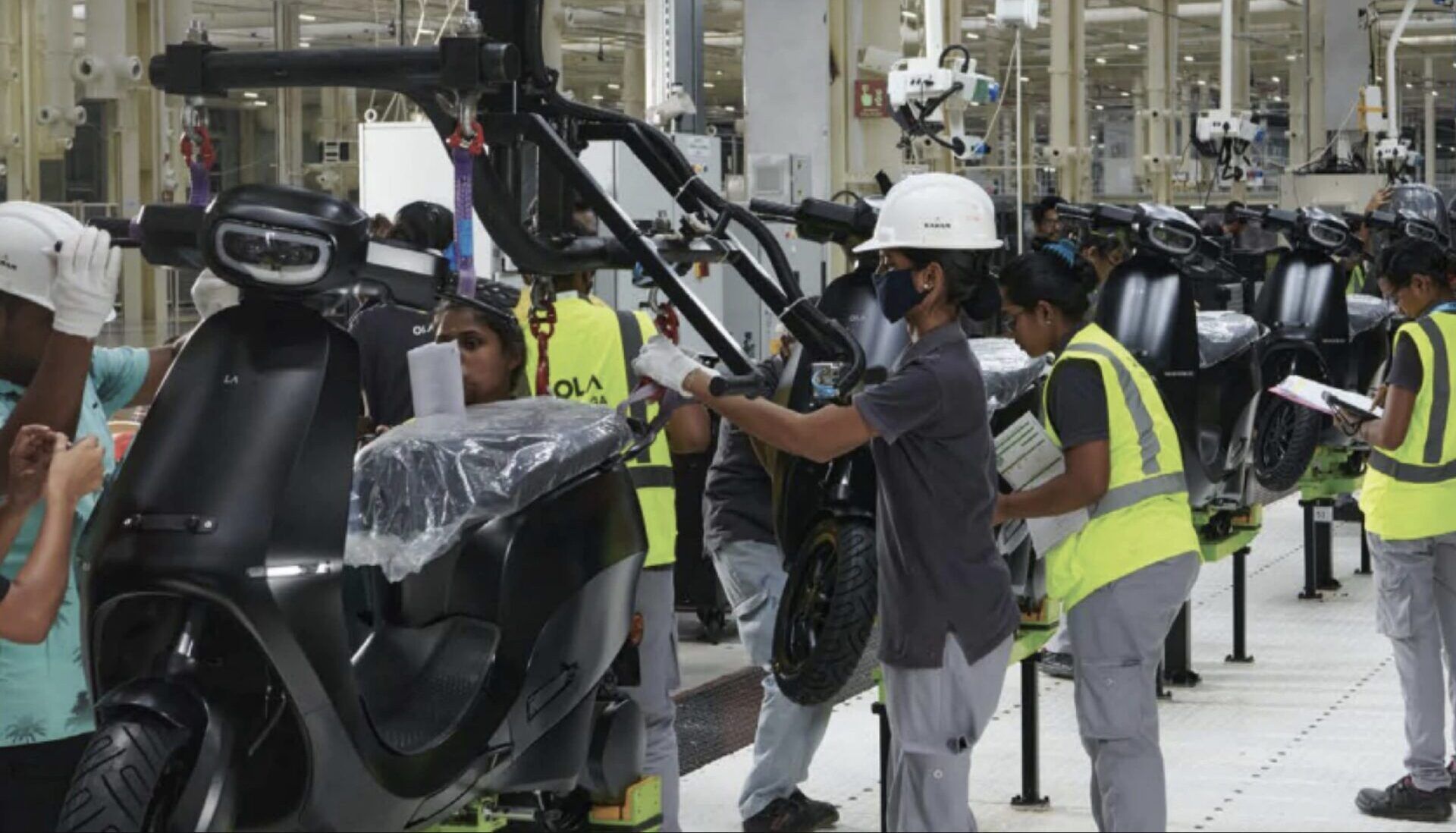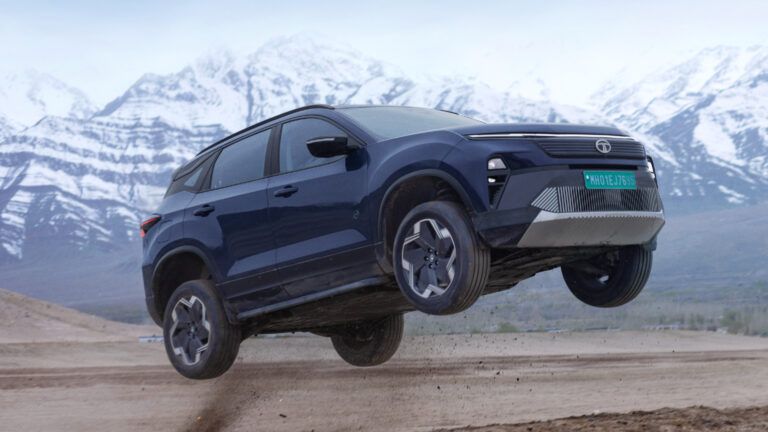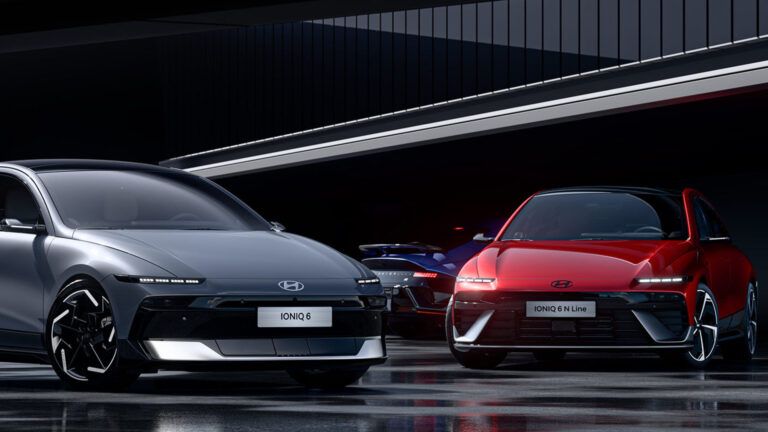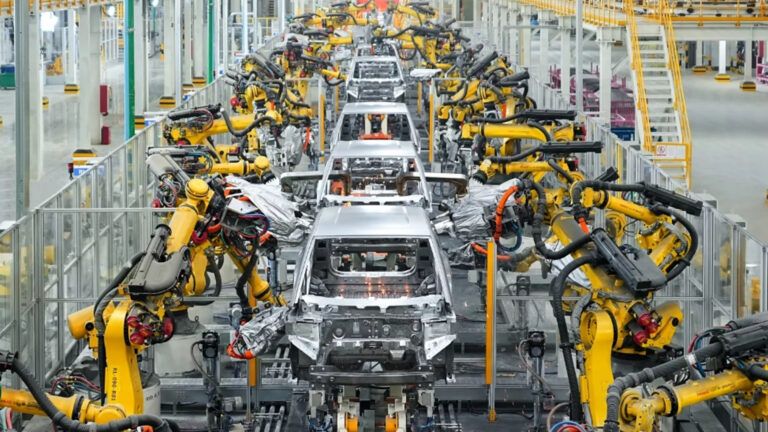India’s auto sector is accelerating towards a clean mobility future, targeting 30% EV adoption by 2030. However, this transition from internal combustion engines (ICE) brings significant upskilling challenges. According to a report by the Automotive Skills Development Council (ASDC), the industry will require over 200,000 skilled professionals by 2030. Yet, India currently adds only 15,000 EV-ready workers annually (Business Standard, 2024). Only 43% skill overlap between ICE and EV roles highlights the urgency to bridge the skill gap.
How the Skills Gap in the Automotive Industry is Impacting Different Stakeholders
Automobile Giants
Even well-established automotive companies are feeling the heat of industry transformation. While they have long-standing expertise in building internal combustion engine (ICE) vehicles, clean mobility technologies such as electric vehicles (EVs), battery systems, AI/ML applications, embedded systems, and connected mobility represent an entirely new learning curve.
The transition is challenging at all levels—from shop floor technicians to business leadership. While corporates do have provisions for upskilling their workforce, these training programs often fall short. They are frequently non-interactive, overly theoretical, and not tailored to the specific needs of experienced professionals. For seasoned employees used to traditional workflows, adapting to new systems can be slow and frustrating.
Adding to the challenge is the digital age’s flood of content—while there are countless learning resources available, most are generic and do not align with the unique needs of different teams or roles. Hands-on, practical training is essential in this industry, but is often missing in favor of standard, classroom-style programs that do not translate well into real-world application.
MSMEs (Micro, Small, and Medium Enterprises)
MSMEs, the backbone of the traditional automotive supply chain, are struggling to adapt to the new landscape. Many of these businesses specialize in mass producing small components for ICE vehicles, but EVs require a different set of components and knowledge. A basic understanding of elements like the EV specific Bill of Materials (BOM) is often lacking, which threatens their survival if they do not quickly upskill.
For example, an MSME that produces wiring harnesses may face challenges in sourcing technicians who are familiar with EV-grade insulation and safety standards.
Student and Fresh Graduates
There is a growing disconnect between what students learn in academic institutions and the skills demanded by the modern automotive industry. While they graduate with a theoretical understanding of clean mobility concepts, they frequently lack exposure to practical, hands-on experience with clean mobility technologies. For example, a mechanical engineering student may complete their degree without ever engaging with electric powertrains, making them ill-equipped for roles in clean mobility.
Much of the current curriculum fails to keep pace with advancements in areas like electric vehicles (EVs), advanced driver-assistance systems (ADAS), telematics, and software-defined vehicles. Adding to the challenge is the limited availability of industry-grade labs and real-world project opportunities, which restricts students’ ability to build relevant technical and digital competencies. As a result, many enter the workforce unprepared for the evolving demands of the sector.
Why Is This Transition Challenging?
While there is definitely a lot of overlap between EV (Electric Vehicle) and ICE (Internal Combustion Engine) engineering—since both involve vehicle dynamics, safety, design, etc.—EV engineers need to develop different skills in several areas that are either not required or are significantly less emphasized in ICE engineering.
Here are key skills that an EV engineer should have which are not commonly possessed by ICE engineers:
Battery Technology & Management
Why it matters: The battery is the heart of an EV—analogous to the engine in an ICE vehicle.
Skills needed:
- Lithium-ion battery chemistry and characteristics
- Battery Management Systems (BMS)
- State of Charge (SoC), State of Health (SoH) estimation
- Thermal management of battery packs
Electric Powertrain Design
Why it matters: No engine, gearbox, or exhaust systems—EVs use electric motors, inverters, and reduction gearboxes.
Skills needed:
- Motor types (BLDC, PMSM, Induction) and control strategies
- Motor controller/inverter tuning
- Regenerative braking systems
Embedded Systems & Software Integration
Why it matters: EVs are highly reliant on embedded electronics and intelligent control.
Skills needed:
- CAN, LIN, and other vehicle communication protocols
- Model-based design (MATLAB/Simulink)
- Embedded C, AUTOSAR, and firmware for ECUs
- Functional safety (ISO 26262)
Thermal Management for EV Components
Why it matters: Batteries and inverters are temperature-sensitive and need careful thermal design.
Skills needed:
- Liquid cooling/heating system design for batteries and motors
- Heat sink design for power electronics
- HVAC integration with thermal strategy
Simulation and Digital Twin Usage
Why it matters: EV systems are often prototyped and optimized virtually due to the cost and complexity of physical iteration.
Skills needed:
- Vehicle simulation (e.g., AVL Cruise, GT-Suite)
- Digital twin modeling of powertrain, battery
- Hardware-in-the-loop (HIL) testing
Here Is How This Transition Can be Made Smoother.
- Hands-on Training for Real-World Skills: Unlike traditional classroom learning, upskilling programs should be built around real hardware and real systems—helping participants gain tangible skills in a highly technical and fast-evolving industry.
- Customized Programs for Corporate Teams: Customized upskilling modules are required to cater to the specific needs of business management teams or technical R&D departments, helping organizations upskill efficiently and strategically.
- Experiential Learning with Industry Experts: Learning directly from seasoned professionals and subject matter experts through immersive, real-world challenges and projects, ensuring relevance and industry alignment.
- Facilitators Who Make Learning Engaging and Effective: Facilitators should not only be the subject-matter experts in their field but also who understand how adults learn best—making learning interactive, approachable, and deeply impactful.
- Strengthening Academia with Practical Exposure: Integrating EV labs into student learning journeys can complement traditional curriculums with real-life applications, bringing theoretical knowledge to life through practical training.
India’s transition to clean mobility brings with it a pressing need for targeted upskilling across the automotive sector. From professionals and MSMEs to students, stakeholders must build new capabilities in clean mobility systems, battery tech, software integration, and more. Traditional training methods often fall short of providing practical, real-world skills essential for this shift. Hands-on, industry-relevant learning is key to preparing a future-ready workforce that can drive innovation and sustainability in mobility.
To address this challenge, Micelio has launched a hands-on technical upskilling program called the ‘Industry-Ready Program for Clean Mobility’, aimed at equipping both working professionals and students with the practical experience and industry exposure needed to upskill in the evolving automotive landscape. The foundation of this program is the Micelio Discovery Studio—an engineering, testing, and validation facility for clean mobility innovations.
(This article is part of our “Voices” series where guest contributors share opinions, experiences, or updates from the EV ecosystem.)
About the Author: Ms. Sudha Mani – Consultant, Micelio
Sudha is a seasoned Learning and Development professional with a rich background in Fortune 500 companies. Her approach to program design is deeply aligned with organizational objectives, consistently fostering a culture of continuous learning and growth. She also founded Smart Learn WebTV, an IIT JEE online coaching venture that was successfully acquired. Driven by her passion for clean mobility, Sudha actively contributes to the ecosystem by developing impactful content and course pedagogy, raising awareness, and leading knowledge-sharing sessions.








